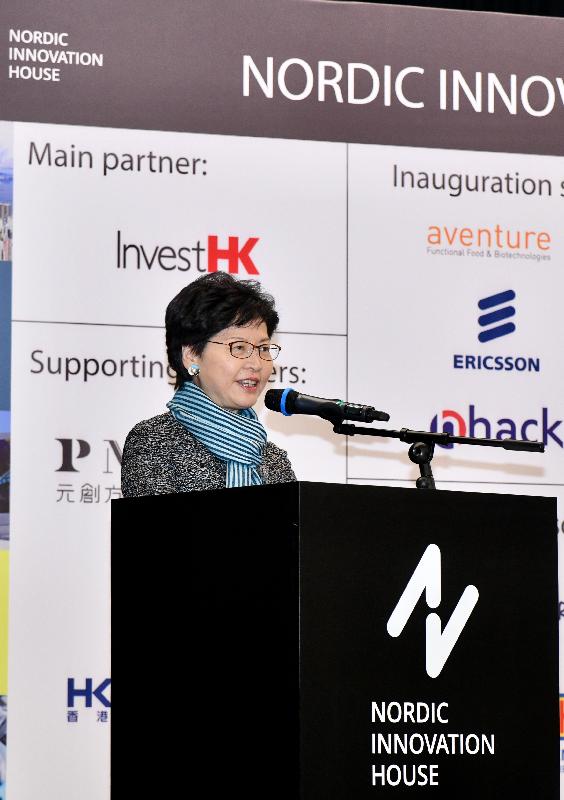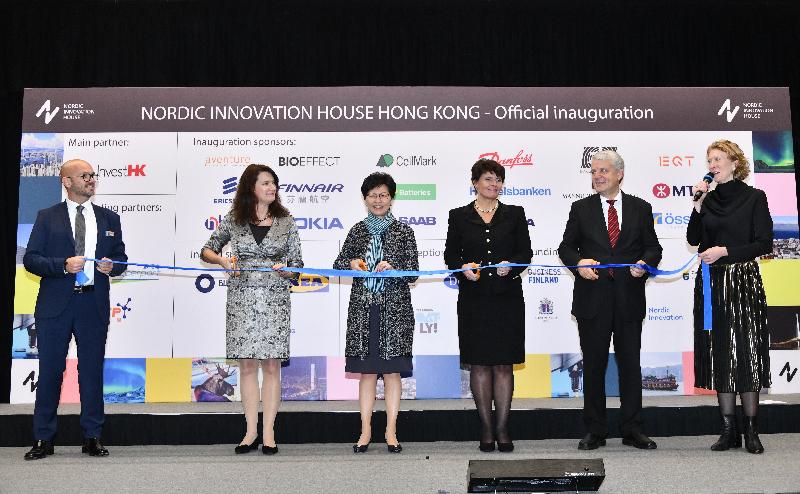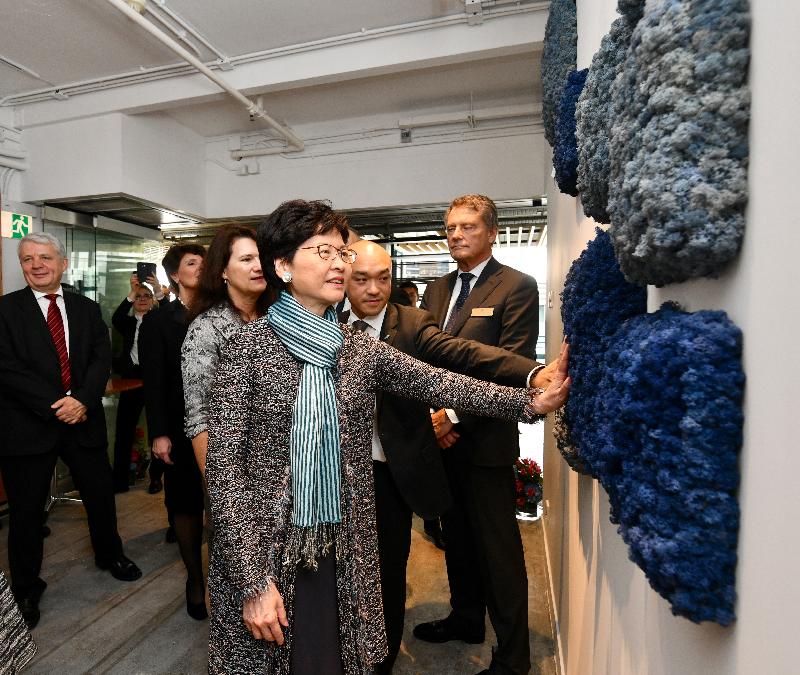Following is a question by the Hon Kenneth Leung and a written reply by the Secretary for Security, Mr John Lee, in the Legislative Council today (November 28):
Question:
In March this year, the Government set up a high-level inter-bureau and inter-departmental steering committee led by the Chief Secretary for Administration, and promulgated an Action Plan to Tackle Trafficking in Persons and to Enhance Protection of Foreign Domestic Helpers in Hong Kong (Action Plan) so as to tackle trafficking in persons (TIP) and enhance protection of foreign domestic helpers (FDHs). In this connection, will the Government inform this Council:
(1) in respect of the efforts made by various policy bureaux and government departments to implement the various measures under the Action Plan, of (i) the progress and effectiveness of such efforts and (ii) the additional manpower and other resources deployed, so far;
(2) of the number of persons, among those foreigners arrested in each of the past five years for suspected engagement in sex work, that were identified as TIP victims after going through the existing TIP victim screening mechanism (screening mechanism), and the follow-up actions taken by the authorities in respect of such victims;
(3) in respect of those persons mentioned in (2) who were not identified as TIP victims, of the measures put in place to ensure that such persons are not TIP victims as defined in the Palermo Protocol; whether it has reviewed if the screening mechanism can accurately identify this type of victims; if so, of the outcome; if not, the reasons for that;
(4) of the current number of foreign workers who have come to work in Hong Kong under the Supplementary Labour Scheme (the Scheme), together with a breakdown by trade; whether the Labour Department (LD) took the initiative, in the past five years, to investigate if the remuneration, working environment and assigned accommodation for such workers met the requirements of the Scheme and the labour legislation, so as to examine if they were subject to exploitation related to TIP or forced labour; if LD did, of the respective numbers of cases in which investigations were conducted and non-compliance/ contravention of the law was uncovered, as well as the respective numbers of the persons concerned who were given warning, prosecuted and convicted; if LD did not investigate, the reasons for that; and
(5) of the current number of FDHs working in Hong Kong; whether LD took the initiative, in the past five years, to investigate if the work arrangements and accommodation conditions of FDHs met the requirements of the employment contracts and the relevant legislation, so as to examine if they were subject to exploitation related to TIP or forced labour; if LD did, of the respective numbers of cases in which investigations were conducted and non-compliance/contravention of the law was uncovered, as well as the respective numbers of the persons concerned who were given warning, prosecuted and convicted; if LD did not investigate, the reasons for that?
Reply:
President,
Trafficking in persons (TIP) is not prevalent in Hong Kong. However, the Hong Kong Special Administrative Region (HKSAR) Government never takes the matter lightly, and has been combating the crimes seriously through a multi-pronged approach.
In order to provide high-level policy steer on the overall strategy and measures to tackle TIP and enhance protection of foreign domestic helpers (FDHs), the HKSAR Government established in March this year a high-level inter-bureau/departmental Steering Committee, which is chaired by the Chief Secretary for Administration, with the Secretary for Security and the Secretary for Labour and Welfare as vice chairmen. Membership of the Steering Committee includes heads of the Hong Kong Police Force (Police), Immigration Department (ImmD), Customs and Excise Department (C&ED), Labour Department (LD) and Social Welfare Department (SWD), as well as Director of Public Prosecutions of the Department of Justice (DoJ). At the same time, the Government promulgated the Action Plan to Tackle Trafficking in Persons and to Enhance Protection of Foreign Domestic Helpers in Hong Kong (Action Plan), which outlines a package of more than 30 multi-faceted measures (including more than 10 new measures and over 20 ongoing measures) that are comprehensive, strategic and targeted, covering multiple areas including victim identification, investigation, enforcement, prosecution, victim protection and support, prevention, and partnership with different stakeholders, etc.
Our reply (prepared in consultation with the Labour and Welfare Bureau and LD) to Hon Leung's question is as follows.
(1) Since the promulgation of the Action Plan, the Steering Committee has been taking forward the implementation of measures set out in the Action Plan.
On victim identification, the Police extended the victim screening mechanism to cover all 24 police districts and relevant units in July this year. C&ED also fully implemented the screening mechanism within the department. To tie in with the extension of the mechanism, the Police had assigned one team from Organised Crime and Triad Bureau and one Regional Crime Unit from each of the six police regions as the dedicated teams to handle cases relating to TIP and exploitation of FDHs. Besides, ImmD, C&ED, LD and DoJ also appointed dedicated teams or officers to handle TIP and FDH exploitation cases so as to strengthen their co-ordination.
On investigation, the "Inter-departmental Joint Investigation Team" (JIT) comprising the Police, ImmD, C&ED and LD continued to meet regularly to discuss the latest TIP trends and enforcement measures against TIP, exchange information as well as conduct joint investigations. To further enhance the effectiveness of joint investigations, JIT plans to develop an inter-departmental joint investigation mechanism to deal with relevant cases.
The HKSAR Government also continued to foster closer partnership with other stakeholders. This year, the HKSAR Government actively participated in TIP-related campaigns organised by civil society and other sectors of the community, including the Launch of the Handbook on Initial Victim Identification and Assistance for Trafficked Persons and the International Conference on Combatting Human Trafficking 2018, etc. Moreover, the Inter-departmental Working Group on Trafficking in Persons (TIP Working Group) had also met with over 10 non-governmental organisations to exchange views on anti-TIP works.
In addition, the Government has all along been providing relevant training to officers of law enforcement agencies (LEAs), LD, SWD and prosecutors of DoJ. The number of officials receiving training has been increasing over the years. During the first nine months of 2018, about 1 800 officers from the Security Bureau and LEAs, DoJ, LD and SWD, the Hospital Authority and the CEASE Crisis Centre (Note) received local or overseas TIP-related training. Among them, the Hospital Authority and the CEASE Crisis Centre participated in such anti-TIP training for the first time. Meanwhile, LEAs continued to actively participate in international or regional conferences and workshops to identify the best practice against TIP.
Other new measures under the Action Plan will be launched gradually. Taking into account the implementation situation of the Action Plan, relevant departments will seek resources under the existing mechanism where necessary.
(2) and (3) One of the key tasks in combating TIP is to keep strengthening and improving the mechanism for identifying victims. ImmD first launched a TIP victim screening mechanism in 2015. The mechanism was then gradually extended to some police districts of the Police and some formations of the C&ED in 2016 and 2017.
In July 2018, the Police extended the victim screening mechanism to cover all 24 police districts and relevant units, and C&ED also implemented the screening mechanism department-wide. Under the mechanism, Police, ImmD and C&ED officers will conduct screenings on vulnerable persons (for example, illegal immigrants, sex workers, illegal workers, FDHs, imported workers, etc., as well as other suspected victim cases) who are arrested or who report themselves as victims to the authorities.
Although the Palermo Protocol has not been applied to Hong Kong, the screening conducted by LEA officers follows the definition of TIP set out in the Palermo Protocol, including whether threat and coercion are involved in the victim recruitment and whether they have been exploited. In 2016, 2017 and 2018 (January to September), respectively 2 515, 4 710 and 5 308 screenings were conducted on vulnerable persons (including sex workers) under the abovementioned victim screening mechanism. In the same period, a total of 29 persons were identified as victims, and three of them involved TIP for the purpose of sexual exploitation or prostitution as referred to in the Palermo Protocol.
Identified TIP victims will be referred to relevant departments for follow-up actions and will be provided with necessary protection and support according to their individual situations, such as urgent intervention, medical services, counselling, shelter and other supporting services.
The TIP Working Group and LEAs will review the victim screening mechanism and the checklist of screening questions from time to time in response to crime trends, departmental operational experience, and feedback from civil society organisations, etc. Improvement measures will be introduced as needed to ensure that the screening mechanism remains effective.
(4) According to available information, the number of imported workers working in Hong Kong under the Supplementary Labour Scheme (SLS) and the breakdown by job title as at end-October 2018 are set out in Annex 1.
The Government attaches great importance to protecting the employment rights of imported workers. Both imported workers and local workers are comprehensively protected by the labour laws of Hong Kong. In addition, imported workers and their employers are required to enter into a Standard Employment Contract (SEC) prescribed by the Government for the purpose of SLS. Labour inspectors of the LD carry out inspections of the workplaces and accommodation of imported workers from time to time and conduct interviews with imported workers individually without interference of any third party (including employers). During interviews with imported workers, labour inspectors inquire of and explain to them their rights and benefits under the Employment Ordinance (Cap 57) (EO) and SEC. At the same time, labour inspectors check whether the employers have complied with relevant labour laws and terms of SEC by examining imported workers' wage and attendance records, employment records and the employees' compensation insurance policy, etc. Moreover, labour inspectors provide an information card with contact telephone numbers of LD and relevant law enforcement departments/organisations to imported workers to facilitate their enquiries or complaints with these parties in future.
From 2013 to 2017, labour inspectors conducted a total of 3 368, 3 256, 3 236, 3 653 and 4 976 inspections in the respective years in handling cases of imported workers. If an employer is suspected of breaching the EO or SLS requirements, LD would conduct prompt investigation. Depending on the circumstances of the breaches, LD would issue written warnings to the employers concerned, and prosecutions would be taken out against the offending employers where there is sufficient evidence and the imported workers agree to act as prosecution witnesses. From 2013 to 2017, LD issued a total of 301 written warnings to employers of imported workers and successfully prosecuted three employers.
Imported workers can call LD's 24-hour hotline or the hotline of SLS to lodge complaints if their employers are suspected to have breached the labour laws or SLS requirements. LD will conduct in-depth investigation into complaints received.
(5) According to available information, as at end-October 2018, there were 385 141 FDHs in Hong Kong.
The Government has all along been firmly committed to protecting FDHs' employment rights and benefits and the support provided to them, and does not tolerate any abuse of FDHs. LD has been enhancing through different means FDHs' awareness of their rights and benefits as well as of the channels through which they may seek assistance, for example through distributing information packs to FDHs arriving at the Hong Kong airport, staging information kiosks at popular gathering places of FDHs on their rest days, publishing promotional materials, and producing promotional videos, etc. LD also maintains close collaboration with the governments of FDHs' home countries and their consulates-general in Hong Kong, and regularly participates in the welcoming programmes organised by the consulates, in order to enhance the awareness of newly-arrived FDHs about their statutory rights and benefits as well as channels to seek assistance.
LD has not entered the places of work and residence of FDHs for inspections as such places are the private residences of their employers. The Government encourages FDHs who suspect their rights and benefits being infringed to seek assistance as soon as possible so that relevant government departments can investigate and follow up. Apart from the branch offices of its Labour Relations Division, LD also provides a 24-hour hotline as well as online forms on the dedicated FDH and Employment Agency (EA) Portals so that FDHs can send in enquiries and lodge complaints about matters related to their employment rights and benefits and EAs more conveniently.
Figures related to LD's enforcement against FDH employers and EAs from 2013 to 2017 are set out in Annex 2. In addition, since the promulgation of the Code of Practice for EAs in January 2017 and up to end-September 2018, LD issued a total of 47 written warnings to EAs.
Note: The CEASE Crisis Centre, operated by non-governmental organisation, provides crisis intervention and support services which aims to serve victims of sexual violence and individuals/families encountering domestic violence or other family crises. The support services include 24-hour hotline service, outreaching service and short-term accommodation service. The CEASE Crisis Centre is one of the designated crisis intervention and support services centre for handling TIP victim cases and such services are fully funded by the SWD.


